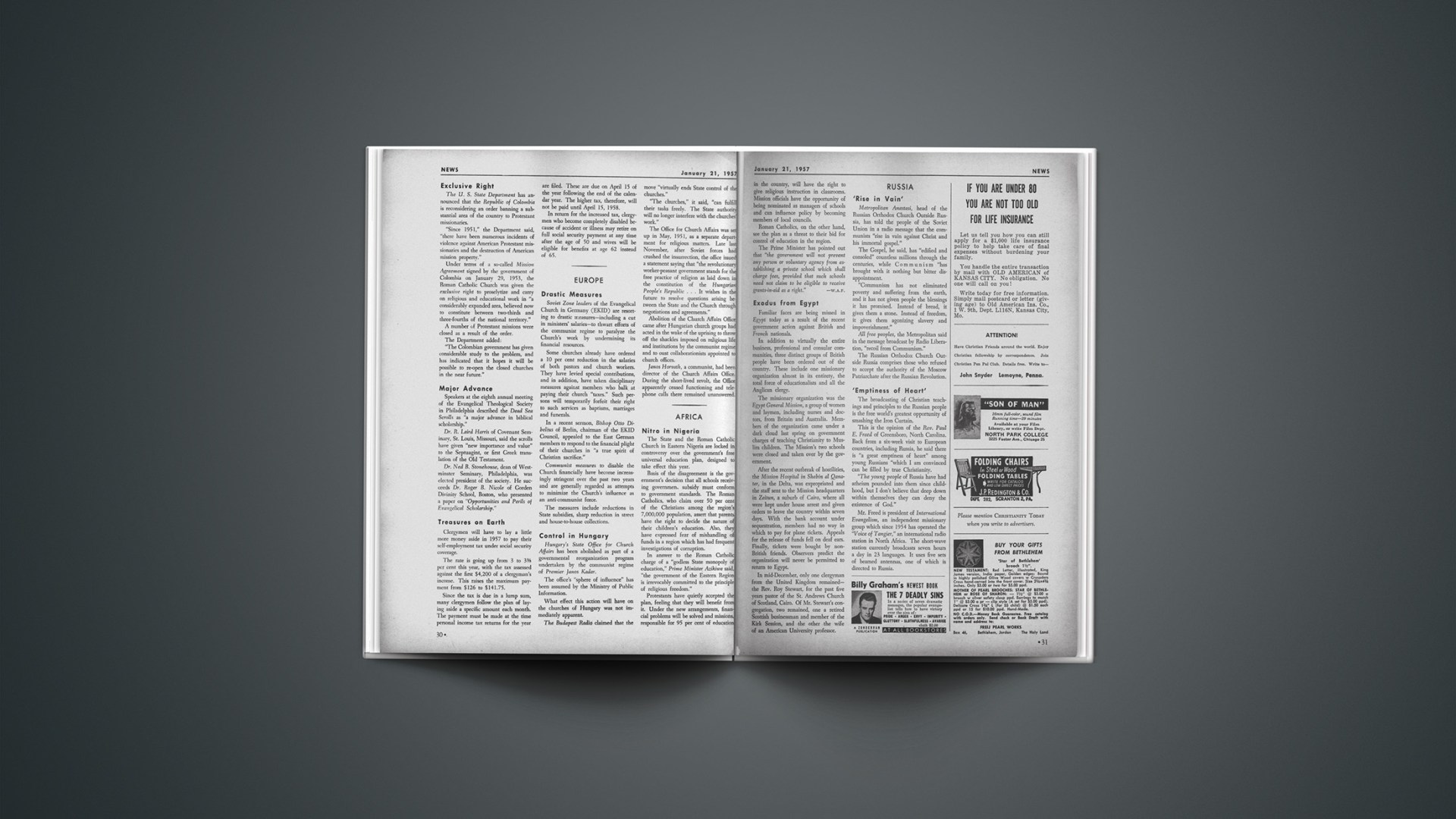Nitro In Nigeria
The State and the Roman Catholic Church in Eastern Nigeria are locked in controversy over the government’s free universal education plan, designed to take effect this year.
Basis of the disagreement is the government’s decision that all schools receiving government subsidy must conform to government standards. The Roman Catholics, who claim over 50 per cent of the Christians among the region’s 7,000,000 population, assert that parents have the right to decide the nature of their children’s education. Also, they have expressed fear of mishandling of funds in a region which has had frequent investigations of corruption.
In answer to the Roman Catholic charge of a “godless State monopoly of education,” Prime Minister Azikiwe said, “the government of the Eastern Region is irrevocably committed to the principle of religious freedom.”
Protestants have quietly accepted the plan, feeling that they will benefit from it. Under the new arrangements, financial problems will be solved and missions, responsible for 95 per cent of education in the country, will have the right to give religious instruction in classrooms. Mission officials have the opportunity of being nominated as managers of schools and can influence policy by becoming members of local councils.
Roman Catholics, on the other hand, see the plan as a threat to their bid for control of education in the region.
The Prime Minister has pointed out that “the government will not prevent any person or voluntary agency from establishing a private school which shall charge fees, provided that such schools need not claim to be eligible to receive grants-in-aid as a right.”
—W.A.F.
Exodus From Egypt
Familiar faces are being missed in Egypt today as a result of the recent government action against British and French nationals.
In addition to virtually the entire business, professional and consular communities, three distinct groups of British people have been ordered out of the country. These include one missionary organization almost in its entirety, the total force of educationalists and all the Anglican clergy.
The missionary organization was the Egypt General Mission, a group of women and laymen, including nurses and doctors, from Britain and Australia. Members of the organization came under a dark cloud last spring on government charges of teaching Christianity to Muslim children. The Mission’s two schools were closed and taken over by the government.
After the recent outbreak of hostilities, the Mission Hospital in Shebin al Qanater, in the Delta, was expropriated and the staff sent to the Mission headquarters in Zeitun, a suburb of Cairo, where all were kept under house arrest and given orders to leave the country within seven days. With the bank account under sequestration, members had no way in which to pay for plane tickets. Appeals for the release of funds fell on deaf ears. Finally, tickets were bought by non-British friends. Observers predict the organization will never be permitted to return to Egypt.
In mid-December, only one clergyman from the United Kingdom remained—the Rev. Roy Stewart, for the past five years pastor of the St. Andrews Church of Scotland, Cairo. Of Mr. Stewart’s congregation, two remained, one a retired Scottish businessman and member of the Kirk Session, and the other the wife of an American University professor.










